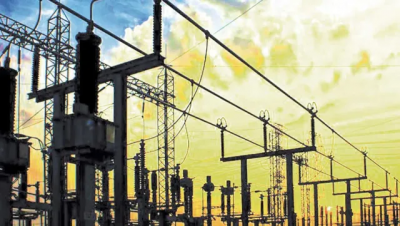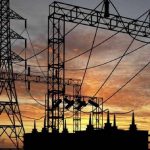The national electricity grid in Nigeria experienced yet another collapse on Monday evening, plunging millions into darkness and raising concerns over the country’s power infrastructure. The outage began around 6:18 PM, with power generation sharply decreasing from 3.87 gigawatts at 5 PM to 3.56 GW by 6 PM, ultimately dropping to zero by 7 PM and remaining at that level through 8 PM.
The Enugu Electricity Distribution Company (EEDC) confirmed the incident in a statement, revealing, “A general system collapse occurred at 18:48 hours today, 14th October 2024.” The collapse disrupted power supply across several states, including Abia, Anambra, Ebonyi, Enugu, and Imo, leaving residents and businesses in the dark.
EEDC explained, “All our interface stations with the Transmission Company of Nigeria are out of supply, and we are unable to provide services to our customers.” The company is currently on standby, awaiting more detailed information on the cause of the collapse and the anticipated restoration of services from the National Control Centre (NCC) in Osogbo.
The Abuja Electricity Distribution Company (Abuja Disco) also reported a system failure at 6:58 PM, impacting the power supply to their franchise areas. In a message to customers, they stated, “Please be informed that the power outage being experienced is due to a system failure from the national grid. Rest assured, we are working with the relevant stakeholders to restore power as soon as the grid is stabilized. Thank you for being so understanding.”
This incident marks the fifth collapse of the national grid in 2024, raising serious questions about the reliability of Nigeria’s electricity supply. The recurring failures have sparked widespread frustration among consumers, especially in light of recent hikes in electricity tariffs aimed at improving service delivery.
Princewill Okorie, Executive Director of the Electricity Consumer Protection Advocacy Centre, expressed his dismay at the ongoing situation. “Despite the increase in tariffs, the grid continues to collapse, leaving consumers without power for extended periods. It’s disheartening that unmetered customers are still expected to pay for electricity during these outages,” he said. Okorie urged the government to take immediate action to address the systemic issues plaguing the electricity sector, emphasizing that reliable power supply is crucial for the nation’s economic growth, especially for small and medium enterprises (SMEs) that rely heavily on consistent electricity.
Experts warn that without significant reforms and investments in the power sector, Nigeria will continue to face challenges that threaten economic stability and growth. The impact of these frequent outages is particularly felt in commercial and industrial sectors, where power interruptions can lead to losses and reduced productivity.
As the country grapples with its ongoing energy crisis, stakeholders are calling for urgent measures to stabilize the national grid and ensure a reliable electricity supply for all Nigerians. The persistent failures highlight the need for a comprehensive approach to reforming the power sector, including upgrading infrastructure, improving regulatory frameworks, and fostering investments that can bring about lasting change.










